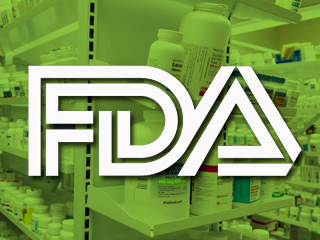Clusivius
 On November 7, the FDA announced their plan to effectively ban “transfats” from American food.
On November 7, the FDA announced their plan to effectively ban “transfats” from American food.
“The FDA’s action today is an important step toward protecting more Americans from the potential dangers of trans fat. Further reduction in the amount of trans fat in the American diet could prevent an additional 20,000 heart attacks and 7,000 deaths from heart disease each year – a critical step in the protection of Americans’ health,” says FDA Commissioner Margaret A. Hamburg, M.D.[1]
The FDA acknowledges in the article that food manufacturers have, on their own, drastically cut their use of trans-isomer fatty acids in food. “Since trans fat content information began appearing in the Nutrition Facts label of foods in 2006, trans fat intake among American consumers has declined from 4.6 grams per day in 2003 to about 1 gram per day in 2012.”[2]
Why should the government step in now?
Most likely some government up-and-comer is trying to make a name for herself, but one can’t help but make a connection between this sort of ban and the ban of other things that the cool kids don’t like, such as cigarettes or junk food.
It’s interesting that the use of partially hydrogenated oils partly arose from the health concerns over the use of animal fats in food preparation. As in the case with bottled water and plastic bags, the progressives want to tear down the devils of their own creation and replace them with they-don’t-know-what. Likely they will despair the unintended consequences of their current fix.
One way or another, this trans fat ban represents another encroachment by the government on personal liberty in the United States.
Patulcius
 Sometimes the government should step in to offset the abuses of private industry.
Sometimes the government should step in to offset the abuses of private industry.
The FDA was created in 1906, a time when companies sold spoiled meat and rat-infested wheat, as well as a wide variety of tainted foods. Sometimes in the private sector if laws don’t protect the consumer from unscrupulous businesses then the moral businesses can prove unable to compete against the immoral ones and the ignorant public won’t do anything about it.
The food industry began using artificial trans fats, in part, because they helped increase shelf life, could reduce the need for refrigeration, and also because they were cheaper to use than animal fats.
In the face of protests by certain segments of the public, the private food industry has largely rid itself of trans fats. They continue to use them in certain foods, such as microwave popcorn, presumably because they haven’t found a cost-effective substitute that won’t affect the flavor of their products.
Trans fats don’t add any flavor and very little consumer benefit to the foods in which they are used, and they represent an unnecessary health risk to the consuming public.
A gradual ban on trans fats, while perhaps unnecessary, will remove a health risk to the public without sacrificing consumer choice in what they eat. The ban is a greater benefit to consumers than any potential harm to liberty.
Concorditas
 While the trans fat ban will likely do some good without greatly disrupting the consumer market, the fact that the private sector is already working to remove it from their products demonstrates how unnecessary the law is.
While the trans fat ban will likely do some good without greatly disrupting the consumer market, the fact that the private sector is already working to remove it from their products demonstrates how unnecessary the law is.
It would be like the police increasing their fines and the number of their patrols in an area where drivers have already voluntarily cut their incidents of speeding by 78%.
It demonstrates the phenomenon of outlier punishment. When a large percentage of people abuse a group’s cultural norms, the zealous enforcers of those norms will show caution when they try to rein in the rebels in order to avoid a major fight. But when sufficiently few people within a group violate the norms, the zealots will vigorously punish the rebels to bring them in line because it’s easy to do.
The FDA ban is unnecessary, offering little benefit. The government estimates 7,000 saved lives out of 320 million people, assuming that current trans fat consumption remains static, which it will not.
[1] U.S. Food and Drug Administration. “FDA News & Events.” FDA Takes Step to Further Reduce Trans Fats in Processed Foods. U.S. Food and Drug Administration, 7 Nov. 2013. Web. 09 Nov. 2013. http://www.fda.gov/NewsEvents/Newsroom/PressAnnouncements/ucm373939.htm
[2] U.S. Food and Drug Administration. “FDA News & Events.” FDA Takes Step to Further Reduce Trans Fats in Processed Foods. U.S. Food and Drug Administration, 7 Nov. 2013. Web. 09 Nov. 2013. http://www.fda.gov/NewsEvents/Newsroom/PressAnnouncements/ucm373939.htm

 When of one mind, Janus' views
form a composite of his two main sides. He attempts to consider issues with care and thoughtfulness, though he remains biased towards Christianity and Western
traditions. Outsiders might call him a Conservative, but in fact he is a Fundamentalist in that he promotes the Christian values that raised Western civilization to its peak.
When of one mind, Janus' views
form a composite of his two main sides. He attempts to consider issues with care and thoughtfulness, though he remains biased towards Christianity and Western
traditions. Outsiders might call him a Conservative, but in fact he is a Fundamentalist in that he promotes the Christian values that raised Western civilization to its peak. Tending to sensationalize, and sometimes to hyperbolize, C. F. van Niekerk over-analyzes any number of subjects from mundane minutiae to the great philosophical questions of life itself.
Tending to sensationalize, and sometimes to hyperbolize, C. F. van Niekerk over-analyzes any number of subjects from mundane minutiae to the great philosophical questions of life itself. Katáxiros, the parched one, alone and adrift at sea, yet ever rowing ahead anyhow, sometimes weakly and sometimes vigorously, thirsting after God through the Orthodox Christian Church, contemplating the ways of the Lord, recognizing that while he is inadequate to the task, he must press ever ahead. Katáxiros writes about matters pertaining specifically to the Orthodox Church.
Katáxiros, the parched one, alone and adrift at sea, yet ever rowing ahead anyhow, sometimes weakly and sometimes vigorously, thirsting after God through the Orthodox Christian Church, contemplating the ways of the Lord, recognizing that while he is inadequate to the task, he must press ever ahead. Katáxiros writes about matters pertaining specifically to the Orthodox Church. We don't know what to make of the Wanderer. He walks in with the moon and rolls out with the wind. He uses no name; the smells of rank sweat, dirt, and smoke mark him as much as anything. He's always near, but never close. Heedless of human ideals and bounds, he stands unyielding for honor on the ground. He's practical to a fault when he's not romantic to even greater fault. He says little, but when he does finally speak, we listen up. The Wanderer is our lawman of final resort. By hook or by crook, he sees a job done, just don't ask how. Frankly, we're a little afraid of the Wanderer.
We don't know what to make of the Wanderer. He walks in with the moon and rolls out with the wind. He uses no name; the smells of rank sweat, dirt, and smoke mark him as much as anything. He's always near, but never close. Heedless of human ideals and bounds, he stands unyielding for honor on the ground. He's practical to a fault when he's not romantic to even greater fault. He says little, but when he does finally speak, we listen up. The Wanderer is our lawman of final resort. By hook or by crook, he sees a job done, just don't ask how. Frankly, we're a little afraid of the Wanderer. Diabolus, the devil's advocate. Sometimes we are tempted to embrace the evil world that we despise. Diabolus is there to encourage us in this folly. Fortunately a rare visitor here.
Diabolus, the devil's advocate. Sometimes we are tempted to embrace the evil world that we despise. Diabolus is there to encourage us in this folly. Fortunately a rare visitor here.












Brittius
/ 9 November 2013Reblogged this on Brittius.com.
LikeLike
Janus
/ 9 November 2013Thanks again, Brittius!
LikeLike
Brittius
/ 9 November 2013You’re welcome.
LikeLike